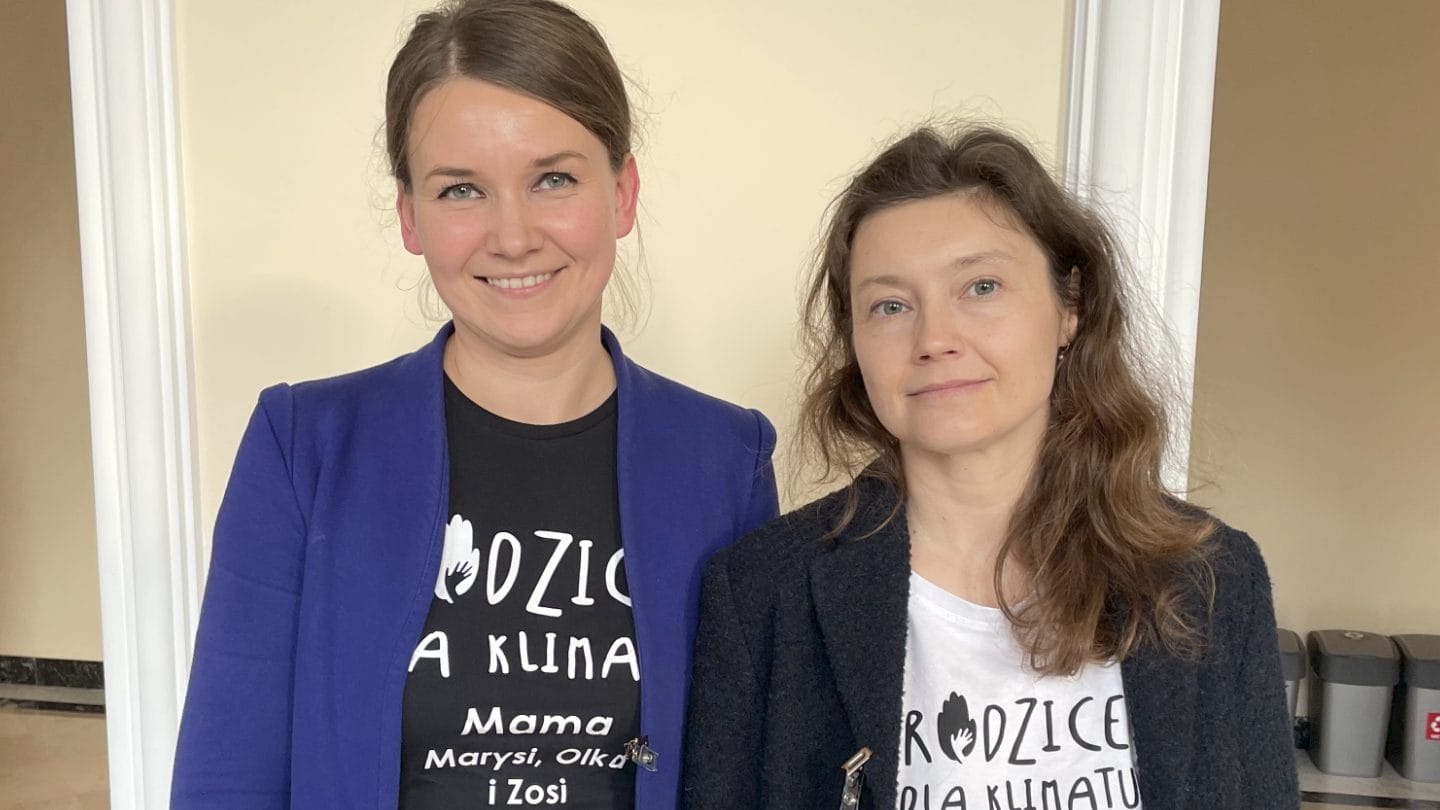Climate: a hot potato for children to eat?

On February 1, I attended the first meeting of the Polish Parliamentary Group Parents for the Climate. Together with invited politicians, heads of ministries (climate, education, health and family and social policy), activists and representatives of the third sector, as well as the media, we discussed who needs an injection of knowledge about the ongoing planetary crisis.
As much as 45 percent. Polish women and men point to politicians as the main sowers of disinformation, and 30 percent. – Polish government representatives. That’s according to research conducted before the change in power by the Institute of Public Affairs. But today, not about statistics, but about impressions of the meeting and ideas for the future are told by two moms acting for the climate: Marzena Wichniarz and Magda Zając.
Paulina Yanushevskaya: You reiterate that climate education should be aimed not only at children, but also, and perhaps especially, at adults. What is behind this belief?
By emphasizing the need to pass on up-to-date knowledge to younger generations, we easily fall into the trap of believing that they are the solution to our problems – adult problems – and that we will be the ones to learn from our children. Meanwhile, we need action in the here and now, and informed, responsible and knowledgeable adults to do it. Not only parents, but especially decision-makers on whom specific decisions and legislative changes depend. This is something we are sorely lacking in Poland. However, not only politicians, but representatives of public responsibility professions, such as journalists, doctors, teachers and even farmers, should be educated in this area. It is also up to them what kind of world our children will live in.
At a meeting of the parliamentary team Parents for Climate There were a lot of demands made about what this adult education would look like. What seems crucial to you?
Climate education includes. Media education, i.e. educating adults to verify content, think critically and increase their digital-media competence. This must be followed by a prioritization of the messages and values promoted in the media, especially the public ones, in such a way as to come out with a positive message to the public regarding the fight against climate change. There should also be pressure on journalists themselves to reliably report on the climate, and publishers should be held accountable for spreading untruths.
It’s time to seriously fight disinformation and hate speech. The criminalization of threats and other undesirable online behavior is key here. As activists in an informal social organization, we experience violence from people who care about misleading the public, such as Confederation politicians. Climate Negationists outright write that they have profiled us, they know where we live or which schools our children study in. This causes fears for one’s own safety and may discourage more people from continuing to take climate action.
We also want to emphasize the ethics of advertising, which significantly shapes our attitudes and habits toward the environment and climate. In our opinion, there is no place in the public media for advertising fossil fuels, for example. If today no one is surprised that cigarettes are not recommended there, why do we allow the promotion of other products and services that are harmful to our safety and health?
We also need to educate doctors about climate-dependent diseases and carry out advocacy work on sustainable nutrition and healthy food production. Here we are hooked on vocational schools, such as agricultural or catering schools, where instead of learning about animal husbandry and meat preparation, adolescents growing up should be taught the basics of a plant-based diet and directed agricultural development.
We also talked about extending mandatory, rather than optional, climate education to officials.
As in France?
Yes, the French intend to subject several million civil servants – including state, local government or hospital officials – to a special climate and energy transition education program by 2027, covering three crises: biodiversity loss, rising global temperatures and dwindling natural resources. It is worth taking an example from them. This is the direction we want to take, or actually continue, because in the last term of the Sejm we held the first workshop entitled Climate Mosaic (derived from the idea of the French NGO La Fresque du climat) for Polish parliamentarians, who enthusiastically welcomed the initiative.
Will the result of your work in the parliamentary committee be any specific law?
Not one, but at least several bills that we have worked on as Parents for the Climate before, but under the United Right government, closed to talks with us, our hands were tied. However, we must emphasize that, for example, within the framework of the law introducing the availability of vegan meals in schools, we also did not have enough support from the then opposition, which was divided on the issue. The project is stuck, but we hope to be able to return to it. We want to extend our activities to legislation, but within the framework of a very broad dialogue with the governmental side, parliamentary, social, local authorities and the scientific community, which for a long time has been treated frivolously by decision-makers.
We emphasize that this is the domain of not only the previous team. It’s not as if the politicians who are currently in power are well educated and informed about climate change. They, too, succumb to misinformation and have a vested interest in, for example, maintaining the current level of meat consumption and thus further subsidizing the livestock sector. Today, however, we heard that there is a great willingness among politicians and politicians to change and undertake cross-ministerial cooperation that is open to the support of NGOs and the public. We will ensure that they turn their promises into real changes.



